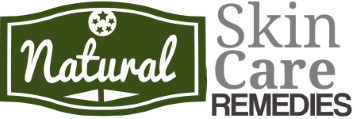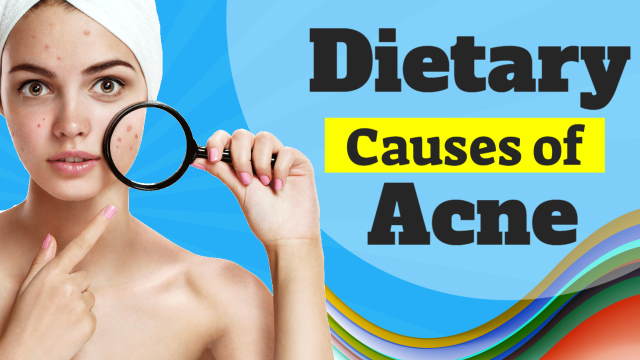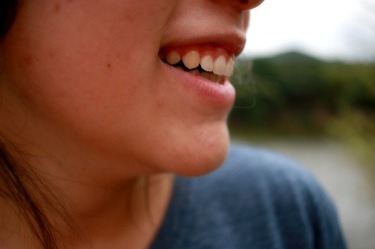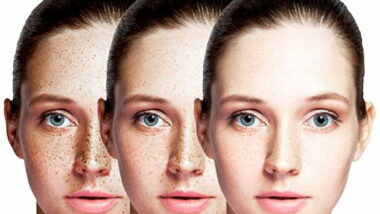It's always worth considering possible dietary causes of acne if it persists. Watching what you eat is part of the armory of curative measures recommended when experts advise on how to achieve skincare for acne sufferers.
On This Page
- Foods That Can Cause Acne
- Best and Worst Foods for Acne
- How Does Diet Affect the Skin?
- Do Any Studies Show that Some Foods Help Your Skin?
- Can the right diet get rid of acne?
- A Low-glycemic Diet May Result in Fewer Pimples
- Is It True That Cow's Milk May Lead To Acne Breakouts?
- No evidence yogurt or cheese can increase acne breakouts
- Effective acne treatment includes skin care and medication
- Can dietary changes help acne?
- How does the diet affect the skin?
The American Academy of Dermatology cites acne as the most common skin disorder in America. Acne or “pimples” are closely associated with teenagers, but this skin problem tends also to affect people into late adulthood, with almost 85 percent of the U.S. Population having it at some point in their lives. Diet does not play a big role in acne, but certain foods may aggravate it, while some nutrients help relieve the condition, and the effect of eating less sugar can have a marked effect in just weeks.
Foods That Can Cause Acne
Insulin is an acne-causing hormone triggered by carbohydrates in your diet. The ADA estimates that half of all adults have some form of insulin resistance. If you suffer from acne, the good news is that it’s not impossible to eat a low or moderate-carb plant-based diet. On top of that, eating the right type of carbs can also lead to less hormonal acne.

A lot of folks will start eating lots of bread, pasta, and rice when they go vegan, all of which are high glycemic index foods, meaning they trigger a lot of insulin. Even some fruits can be extremely high in carbs.
If there were an Olympics for the diet that was best for promoting the most chronic diseases, the modern industrialized diet would stand an excellent chance of winning gold. It’s increasingly well-known that a diet high in sugar, processed foods, factory-farmed animal products, and chemicals fuels cancer, heart disease, type 2 diabetes, and a plethora of other diseases. But now we can add a new downside to the list: acne. And here are the top three foods that cause acne and why.
Although topical treatments may produce quick results, they often have side effects, may dry out the skin, and don't address the root dietary causes of acne. So, for a long-term strategy, it is better to treat acne from the inside out through dietary changes.
Since diet plays such a large part in acne problems, the first step to alleviate the problem is to make the necessary dietary changes. Without doing this, your chances of improvement are greatly reduced. •a high-fiber diet of whole-grain bread and cereals, bran, legumes (beans, lentils, and split peas) and lots of fruits and vegetables is a good way to minimize eating the wrong foods. Often skin problems are rapidly improved when more fiber is added to the diet.
Best and Worst Foods for Acne
Improve Your Diet by Avoiding Sugary Foods to Avoid Face Mask Acne
Now that you know how to help keep your acne from getting worse, keep it that way. You may not see results right away. It took me two weeks to notice a huge difference. I've been using a mask for at least 5 months and at first, I was developing acne. I changed my diet and I have seen no more than 3 pimples on my face at one time. There is no more redness. After using this mask my face also feels one hundred times smoother. It's like a miracle! after the two weeks, I continued using my mask, along with changes to my diet. I've noticed that sugary foods make me break out. I look at the sugar content in the products I buy now. That way I can avoid dietary causes of acne attacks. The honey mask really helps them from coming on. When it's my time of the month, I avoid sweets altogether. I'm already prone to breaking out during that time, due to hormones, so why eat sweets and make it really bad. The one thing that is hard to change is stress. That is why my doctor believed i was breaking out that bad.
Excess Oil on the Skin
Excess oil on the skin can come from excess sebum production or from contact with oily products like greasy foods or oily lotions and creams.
Other Acne Causes
Other acne causes include:
- Puberty increases in androgen production, which leads to increased sebum production.
- If you have a family history of acne, you are more likely to develop it yourself.
Diet: contrary to popular belief, eating greasy foods like chips and burgers have not been found to affect acne. That being said, the relationship between diet and acne still needs further exploration, but some studies do suggest that certain foods can exacerbate acne, including high glycemic foods (i. e. Foods that contain simple sugars like soda and candy), chocolate, and dairy.
How does diet affect the skin?
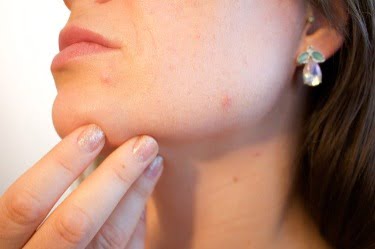 Acne is a common skin condition that affects almost all of us at some point. 10% of the world’s population has acne, according to some statistical sources. Many factors contribute to the development of dietary causes of acne, and your diet is one of those. What you eat reflects on your face, whether like it or not. With that in mind:
Acne is a common skin condition that affects almost all of us at some point. 10% of the world’s population has acne, according to some statistical sources. Many factors contribute to the development of dietary causes of acne, and your diet is one of those. What you eat reflects on your face, whether like it or not. With that in mind:
- some foods help you achieve clear skin, and
- some foods cause acne.
Even though there haven’t been any scientific data backing up that certain foods can contribute to acne breakouts, most say that real-life experience shows it is a fact. Therefore, we suggest avoiding these foods that cause dietary causes of acne if you like a clear complexion.
Among the die-hard skin-care fans on Reddit.com’s community “skincare addiction”, there’s a prevailing belief that committing to a dairy-free diet will have a big effect on your acne. One user who has nicknamed his/ herself “andbutter”, wrote that “giving up dairy was the best thing I’ve done for my skin. ” Another Reddit user claimed, “I cut out dairy and switched to almond milk (not soy because he read it can negatively affect the skin) about 3 years ago and my skin is better than ever!”
To properly carry out its functions, your skin needs a wide range of nutrients as well as vitamins and fatty acids (unsaturated). Having a deficiency in any of these diet essentials can result in dry skin. The following nutrients are crucial for healthy skin:
- Beta-carotene
- Vitamins A, C, and E
- Omega-3 fatty acids
- Hormonal influences.
- Changes in the body's hormone levels can affect the moisture balance of the skin and cause it to become dry.
Do Any Studies Show Foods That Help Your Skin?
When you have acne, four main changes happen in the skin, including:
- increased sebum (or oil) production;
- clogging of pores by excess skin;
- bacterial overgrowth, and
- general inflammation caused by any number of sources.
Adult women are more prone to dietary causes of acne than adult men, which could be driven in part by hormonal imbalances. There is a link to diet, as well and in theory, any food that exacerbates inflammation can make acne worse.
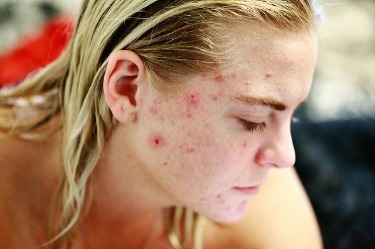 Start first with high glycemic foods. These are foods that cause a spike in blood sugar levels after you eat like white bread, rice, cookies and cakes.
Start first with high glycemic foods. These are foods that cause a spike in blood sugar levels after you eat like white bread, rice, cookies and cakes.
“High glycemic index foods increase insulin and other things in the body that lead to increased skin inflammation and increased oil production,”
says Rajani Katta, M. D., Dermatologist, and Author of “Glow: The Dermatologist’s Guide to a Whole Foods” who serves on the voluntary clinical faculty of Baylor College of Medicine and the McGovern medical school at the University of Texas in Houston. Studies show that oil glands get smaller after people follow a 12-week diet with a low glycemic load, a measure that’s obtained by multiplying the quality of a food’s carbohydrate by the quantity of carbohydrate in one serving of that food.
A study on diet and dietary causes of acne in the journal of the American Academy of Dermatology explains,
“Before the 1960s, certain foods were thought to exacerbate acne. However, subsequent studies dispelled these alleged associations as myth for almost half a century. Several studies during the last decade have prompted dermatologists to revisit the potential link between diet and acne. ”
thus, new studies are beginning to show links of varying strengths between the foods we ingest and the condition of our skin.
Your skin, body, energy levels, and overall health benefit from a diet high in fruits and vegetables, as countless studies show. In research published in the international journal of molecular sciences, researchers explored how plant-based food and supplements can help to control acne. Specifically, they explored how the gut microbiome provides feedback between the foods that we eat and our bodies. The gut microbiome and the relationship between foods are also important when it comes to inflammation, one of the key dietary causes of acne.
Can the Right Diet Get Rid of Acne?
Eating the right healthy diet may possibly get rid of acne. But, it's not really conclusive yet. Most people who experience acne have their own version of the particular causes that lead to their breakouts. Some blame it on stress, others on their unhealthy diet, or even on their genes and general bad luck. If you are fighting acne, too, then you probably have an elaborate story prepared for anytime someone asks you about your woeful tale of battling breakouts! Nevertheless, there is one factor that most people dismiss because of its seemingly unlikely side effects.
Your acne problem maybe from your use of water. People tend to shrug this idea off as inconsequential. It is such a straightforward explanation, to their intense, drawn-out battle with pimples. It is possible that your acne may be caused by the very substance you use to cleanse it – tap water.
To understand how acne develops, it can help to understand more about the skin. The skin’s surface is covered in small holes that connect to oil glands (sebaceous glands), beneath the skin. These holes are called pores. The oil glands produce an oily liquid called sebum. Your oil glands send sebum up to the skin’s surface through a thin channel called a follicle. The oil gets rid of dead skin cells by carrying them through the follicle up to the surface of the skin. A thin piece of hair also grows up through the follicle.
There are three classes of drugs against androgen. These are Spironolactone, Flutamide, and Finasteride. Spironolactone is the most used as it is cheap and safe as compared with others. The drugs are used to lower androgen levels, improving hair fall, extra body hairs, acne, and blood lipid levels.
A Low-glycemic Diet May Result in Fewer Pimples
The small studies that have been conducted to look at the effect of a low-glycemic diet on acne suggest that a low-glycemic diet may be helpful, but further research is needed to fully elucidate the role that diet may play in acne. The low-glycemic diet induces relatively low amounts of insulin to keep blood glucose levels within the normal range. In contrast, a high-glycemic diet requires more insulin to maintain glucose levels. This could lead to insulin resistance, which in turn can cause numerous health problems including high blood pressure, heart disease, obesity, and diabetes.
 Dietary Causes of Acne – Vegan Acne
Dietary Causes of Acne – Vegan Acne
Any major diet shift can have us relying on foods we’ve always eaten, but maybe more heavily than before. Sometimes we may not even realize it. I rely a lot more on bread now than I had before, mostly because I can sometimes be a little bit lazy, and also because I just really love bread. But high glycemic foods such as white bread, white flour, cereals (corn flakes, instant oatmeal), white rice or pasta, russet potatoes, pretzels, rice cakes, crackers, melons, can lead to insulin spikes. These can lead to what is often called “vegan acne”. Reducing consumption of these high glycemic foods may help some people, especially bread lovers like myself.
Hydration to Reduce Acne
Just as important as eating a nutrient-rich diet is drinking plenty of water. If you’re a soda drinker, you may be chronically dehydrated because the distilled water in soda pulls nutrients and moisture directly from your body. Dehydration leads to dry skin, which can cause cracks and peels where bacteria can get in to form pimples. Keep yourself hydrated by drinking 6-8 glasses of pure water each day.
Dietary Supplements
A dietary supplement to fill in the nutritional gaps your diet leaves behind. Most commercial vitamin brands are not really as beneficial as you might think. They are no more than a concoction of man-made synthetic “vitamins” that do nothing, or very little, to improve your health. Your body can’t even absorb mush of them! Worse still is that many vitamin pills contain small amounts of harmful chemicals. They may also include additives that make skin and other health problems worse.
Is It True That Cow's Milk May Lead To Acne Breakouts?
While cow's milk (but not milkshakes) is a low-glycemic beverage, some studies suggest that drinking this type of milk may be linked to an increase in acne breakouts. In these studies, all types of cow's milk (whole, low-fat, and skim) have been linked to dietory causes of acne. Here’s what the researchers discovered. Why cow's milk may increase or worsen acne is still a bit of a mystery. One theory is that some of the hormones in milk cause inflammation inside the body. Inflammation can clog your pores, leading to acne. However, more research is needed to know for sure.
First off, it’s important to note that since everyone’s body is different and since foods affect people in different ways, there’s no one right answer to solving for food-related skin issues. Pro-inflammatory foods can be different and wide-ranging, however, according to Dr. Del Campo, the most problematic foods for skin include cow’s milk, sugar, alcohol, and even gluten. Cow’s milk is the best example, as it is the most clearly studied and talked about.
“we know that some cow’s milk contains igf-1 , which is a growth hormone. This leads to inflammation, and inflammation is key to breakouts,”
Dr. Del campo says.
“Cow’s milk, due to its natural sugars, also leads to an insulin spike, further increasing igf-1 levels.”
There’s actually a lot of factors that contribute to breakouts. First, some people tend to make more oil than other people due to their genetics as we are genetically programmed to make a certain amount of oil. Dr. Zeichner says,
“When skin cells stick together within the follicles, they trap the oil from reaching the surface of the follicle. This allows oil levels to increase within the pore, along with overgrowth of acne-causing bacteria. ”
all of this ultimately leads to inflammation in the skin.
No evidence yogurt or cheese can increase acne breakouts
Most evidence-based studies agree that
Vegan Acne
can be triggered by dairy. We see a high correlation between dairy consumption and acne. We don’t exactly know why but most likely because cows are usually treated with hormones to allow them to produce milk for longer. This hormone residue gets into your body and disrupts your body’s natural hormones. Staying away from milk may not be enough. Most dietary caused acne sufferers need to stay away from milk products like cheese, cream, yogurt, and other milk products. The classic breakouts we get after eating a big, yummy, cheese pizza are from this hormone imbalance.
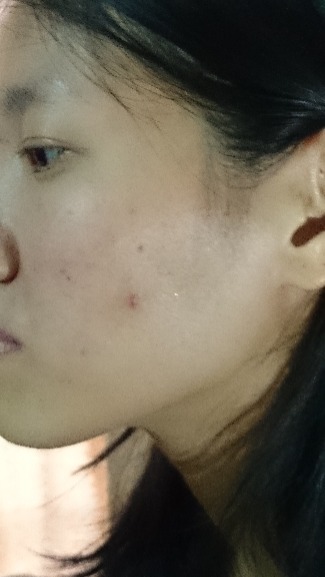
Here’s where things get confusing about the dietary causes of acne. Although studies have shown that milk and ice cream are associated with yogurt and cheese don’t seem to have the same relationship. Scientists can’t exactly figure out why cheese is a safer choice, which is why the dietary causes of acne question of whether dairy causes acne is so difficult to answer. Part of the theory stipulates that hard cheeses have less lactose than milk does, but there’s no evidence that suggests lactose plays a role in acne. So take a deep breath; pizza and cheese boards might not be good calorically, but they seem to be okay for your complexion.
According to a 2011 study, intestinal microflora may affect inflammation throughout the body, which in turn, can affect acne breakouts. Since pre and probiotics can reduce inflammation and oxidative stress, scientists believe they may help reduce acne breakouts. There appears to be more than enough supportive evidence to suggest that gut microbes, and the integrity of the gastrointestinal tract itself, are contributing factors in the acne process scientists have opined. To get more probiotics in your diet, try yogurt, kefir, sauerkraut, dark chocolate, microalgae, miso soup, pickles, tempeh, kimchi, and kombucha tea.
Effective acne treatment includes skincare and medication
Affecting as many as 50 million people in the united states each year, acne is the most common skin condition in the country. It often begins during puberty, and it is especially prevalent between the ages of 12 and 24. Acne can cause oily skin and several types of lesions, including pimples. Symptoms vary from mild to severe, and they can impact a person’s quality of life. While there is currently no cure for acne, the range of effective treatments includes prescription medications and over-the-counter gels and creams. Lifestyle changes can also help to reduce symptoms and prevent breakouts.
Can dietary changes help acne?
There’s very good evidence to show that dietary advanced glycation end products are detrimental to human health. Reducing age in the diet has been shown to balance hormones associated with acne. Similarly, eating fewer ages has been demonstrated to reduce inflammation. Women prone to hormonal-type acne and anyone with inflammatory-type acne should consider a low age diet. On this page, we only looked at factors relevant to acne, but ages have also been linked to cancers, heart disease, and other health problems.
Adult acne treatments range from home remedies that tackle the root causes such as those listed above to various over-the-counter (OTC) acne products to medications prescribed by a dermatologist.
Home remedies include:
- Aloe Vera used on the skin in place of a cleanser
- Green tea extract when taken as a supplement
- Tea tree oil applied in gel form on acne lesions.
- Zinc used either in topical form or as a supplement. Dietary and lifestyle changes.
- Beta hydroxy acid (BHA) products that act as skin exfoliants to remove dead skin cells.
How does the diet affect the skin?
Milk is another food in the list of the worst foods that can cause acne breakouts. It can affect you whether or not depending on the levels of your hormone. Many experts recommend that you should drink low-fat milk to get enough vitamin d and calcium in your daily diet. However, if you want to get clear skin, you should cut it out of your diet and consider choosing an alternative option. Like cheese, milk is known as a typical reason for causing acne breakouts.
When it comes to skincare, we often put so much attention on the outside that we forget about our insides. Once upon a time, a common dietary cause of acne myth was that french fries and chocolate were to be avoided at all costs if you wanted clear skin. Now we know those foods don’t necessarily cause acne, but some foods do have properties that can trigger breakouts.
Overall diet plays a role in how our body functions, especially when it comes to our largest organ – our skin. While few experts believe diet is the primary cause of acne, these are a few pointers that could help you determine if your diet is affecting your acne disproportionately.
The cosmetics industry labels three skin types:
- normal,
- dry or
- oily.
The truth is that skin type depends on your ancestral roots—your genetic makeup. Your skin will be more sensitive if you have a family history of eczema or poor skin condition. Nordic people’s fair hair and skin lets in more light than dark skin. Dark skin acts as a protective shade to keep harmful burning sun rays out. In short, skin type is affected by genetic, dietary, climatic, environmental, and psychological factors.
Not all foods are bad. There are those that provide your skin with the nutrients it needs to stay healthy and they do not spike insulin levels in your blood.
Here are some of them:
- Low glycemic foods, such as whole grains, unprocessed fruits, and vegetables, legumes, etc., do not increase sugar levels and help to improve acne.
- Foods rich in zinc such as pumpkin seeds, cashews, oysters, turkey, etc., are anti-inflammatory and help to reduce the levels of dietary causes of acne -causing bacteria in the skin.
In some industrialized countries, acne is reaching prevalence rates of over 85 percent of teenagers. In nearly half of American men and women, acne even continues after adolescence and into the third decade of life. Acne is considered a disease of western civilization, as in places like Okinawa, Japan, acne is rare or even nonexistent. So, acne is not some “physiological” phenomenon of puberty but may represent:
“a visible risk indicator pointing to aberrant nutrient signaling promoting chronic epidemic diseases of civilization,”
according to a group of German researchers.
Dietary Causes of Acne – Conclusion
What they mean is that the dairy, junk foods, meat, and egg proteins in Western diets all conspire to raise the activity of the enzyme TOR, contributing to acne and obesity. Therefore, using diet to suppress acne may not only improve it but may also prevent the progression to more serious chronic TOR-driven diseases of civilization. The excessive TOR stimulation induced by the standard American diet may initially manifest as premature puberty and acne, but then may later contribute to obesity, diabetes, cancer, and Alzheimer's.
With the dietary link being so subjective and so difficult to prove conclusively, the general recommendation is that if you've noticed your dietary causes of acne get worse after consuming certain foods or drinks, then these may be playing a part. Keeping a food diary is one way of identifying your triggers. If you feel as though a particular food type is linked to an increase in spots, it is recommended that you cut it out of your diet for at least six weeks. If you notice an improvement over that time, there could well be a link and it's worth keeping that food out of your diet.
